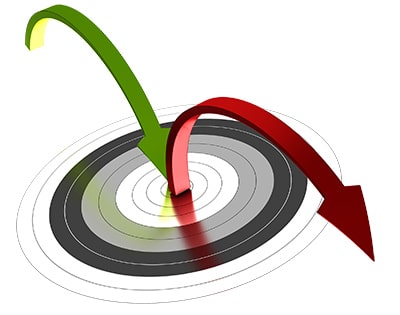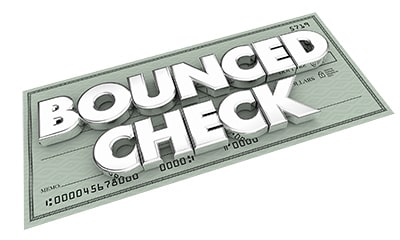Cheque Law in Kuwait
 A negotiable instrument is a document recorded as a hard copy that represents an unconditional promise to pay a specific amount of money determined upon the interest of its owner. The emergence of new technology influences the business world also; it takes up new modes which are more flexible in money transactions. The main advantage of the negotiable instruments is that the easiness of transferrin from one person to another. This will reduce the use of money and the amount of money circulating in the market. Cheques are also called commercial papers or bills of exchange foreseeing their flexibility to using them.
A negotiable instrument is a document recorded as a hard copy that represents an unconditional promise to pay a specific amount of money determined upon the interest of its owner. The emergence of new technology influences the business world also; it takes up new modes which are more flexible in money transactions. The main advantage of the negotiable instruments is that the easiness of transferrin from one person to another. This will reduce the use of money and the amount of money circulating in the market. Cheques are also called commercial papers or bills of exchange foreseeing their flexibility to using them.
Kuwaiti Law does not mention any definition for ‘cheque’. Jurisprudence explains it as a written order or a note for a particular purpose. In a cheque, a person demands the ‘drawee’ to make payment. The possession of the document itself will give drawee the right of execution i.e., handing over a cheque means that he is giving a guarantee for the payment. The validity period of a cheque will be under the prevailing system of a country. Under Kuwaiti Law, the cheque will be treated as valid unlimitedly as there is no prescribed time limit. But in the case of the Post-dated cheques, it will be treated as a promissory note under Kuwaiti law.
In Kuwait issuing a cheque without having sufficient funds in the account at the time you are signing it or even if it is a post-dated cheque or letting the balance of your account fall below the amount which required paying all outstanding cheques will attract penalties.
Law relating to cheques in Kuwait
Article 523 of the Kuwaiti Law describes the punishment for dishonoring of cheques. It states that the drawee will bear the detriment resulting from the payment of a cheque where the signature of the ‘Payee’ is forged, or if the data on it is distorted, provided the fault cannot be ascribed to the drawer. The drawer is responsible for the fault that happens with the chequebook given to him from the bank. The Decree of Law number 15 for the year 1978 (which overrides Article 237 of Kuwaiti Penal Code) specifies the punishment of imprisonment, for a period not surpassing five years and with a fine not surpassing five hundred dinars or each of either punishment, for a person who, with bad intention, commits these acts .that is if he gives a check that has no current and cashable payment, If he withdraws from his account, after giving the cheque all or a portion of the cash in the account so that the leftover amount isn't adequate for the value thereof If the drawer instructs the drawee not to cash the cheque. If the drawer purposefully prepares the cheque or where the signature is forged or if the data on it is distorted incorrectly intending to cancel the transaction.
A new mechanism was adopted to intimate the customers that their cheques are returned due to the insufficient balance in the account. This mechanism was formulated by the Central Bank of Kuwait. The mechanism is that if the first cheque is returned, the bank must intimate the account holder by sending a warning letter through the registered e-mail. If the cheque is bounced for the second time, a warning letter should be send through the registered email and the bank should make a call through its call centre along with a SMS to the registered phone number.
 The law in Kuwait is overseeing banking and commercial papers are similar to the laws in North American and European jurisdictions. However, concerning cheques, the rules are very different. Stop unlawful payment orders but once it is issued the payment of a cheque cannot be blocked at the bank. Giving a cheque without sufficient funds will attract criminal offense.
The law in Kuwait is overseeing banking and commercial papers are similar to the laws in North American and European jurisdictions. However, concerning cheques, the rules are very different. Stop unlawful payment orders but once it is issued the payment of a cheque cannot be blocked at the bank. Giving a cheque without sufficient funds will attract criminal offense.
In certain parts of the world, a post-dated cheque is considered as a guarantee for the services yet to be performed and gives confidence that he will be paid for the service after the work is completed. But this practice will not make any sense in Kuwait. The supplier of the service provider can submit the cheque as soon as he receives it. The drawee cannot stop him from submitting the cheque for payment under any circumstances.
Another difference in the law relating to cheques in Kuwait is that the cheque must be presented within one month of its date or else it will become stale after one month. This is the shortest period in the developed world. Previously, legal action on dishonouring of the cheque can be started at any time but now it must be started within four months of the date of issue (if the cheque was provided locally) or within six months of that date where it was issued overseas but is payable in Kuwait.
Conclusion
 All countries have their own rules and regulations for managing the negotiable instruments. In Kuwait, Article 523 of the Kuwaiti Law describes the punishment for dishonoring of cheques. The cheques can be given as the surety for a service. In Kuwait issuing a cheque without having sufficient funds in the account at the time of signing or even if it is a post-dated cheque or letting the balance of your account fall below the amount required to pay all outstanding cheques will attract the punishment of imprisonment, for a period not surpassing five years and with a fine not surpassing five hundred dinars or each of either punishment. The post-dated cheques must be presented within one month of their date or else they will become stale after one month.
All countries have their own rules and regulations for managing the negotiable instruments. In Kuwait, Article 523 of the Kuwaiti Law describes the punishment for dishonoring of cheques. The cheques can be given as the surety for a service. In Kuwait issuing a cheque without having sufficient funds in the account at the time of signing or even if it is a post-dated cheque or letting the balance of your account fall below the amount required to pay all outstanding cheques will attract the punishment of imprisonment, for a period not surpassing five years and with a fine not surpassing five hundred dinars or each of either punishment. The post-dated cheques must be presented within one month of their date or else they will become stale after one month.
Another mechanism was adopted by the Central Bank of Kuwait to intimate the account holder that the account does not have a sufficient amount by sending a warning letter through the registered e-mail, a call through its call centre and with an SMS to the registered phone number.
 English
English
 عربي
عربي Русский
Русский 官话
官话 português
português
 Türk
Türk 




